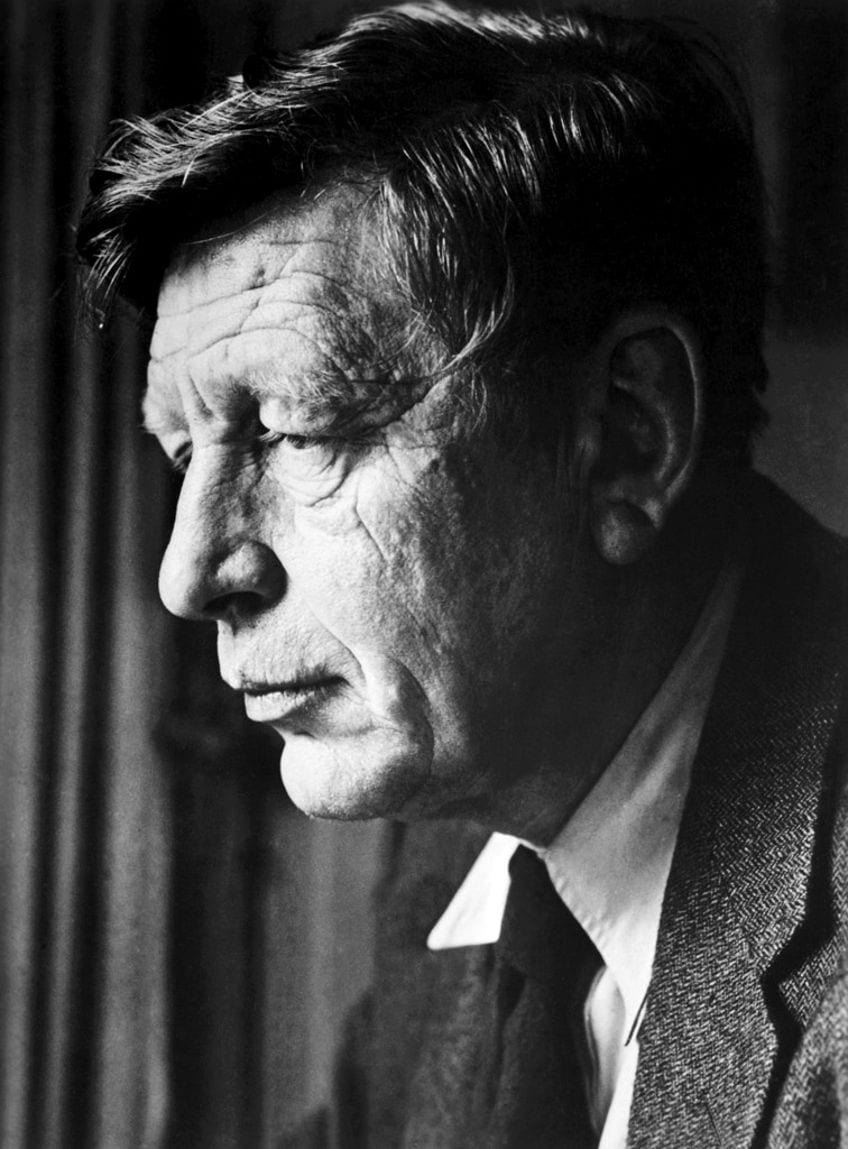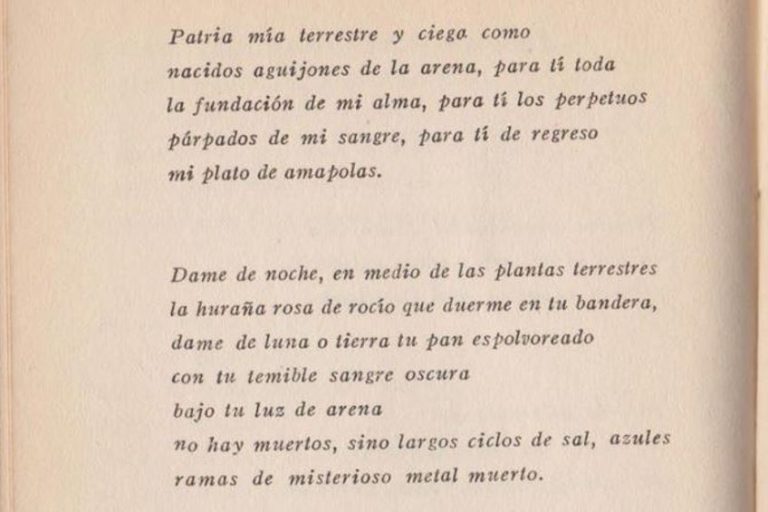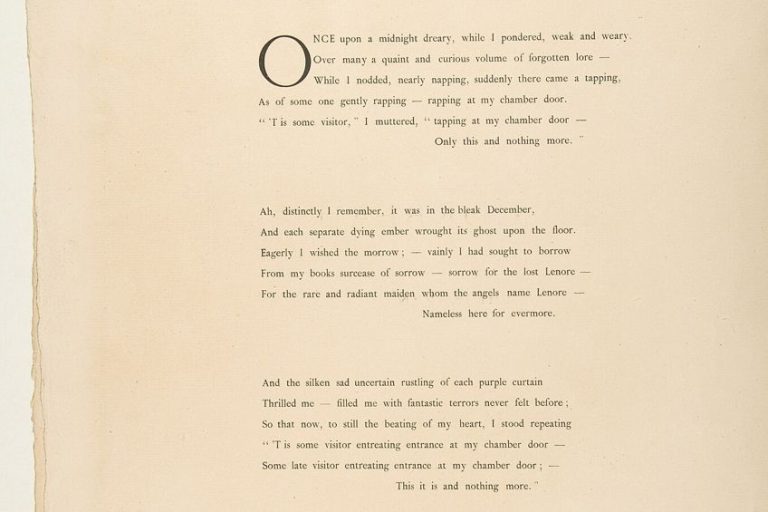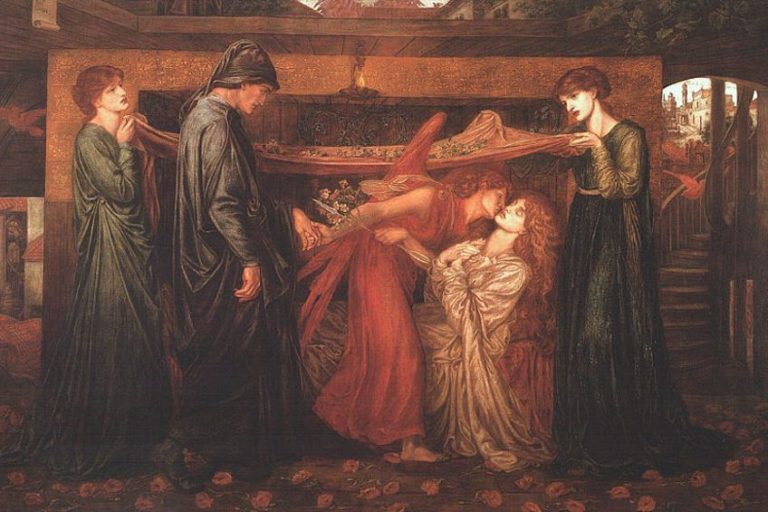“Funeral Blues” by Wystan Hugh Auden Analysis – A Closer Look
Every now and then, a poem will come along that has such a memorable line that people just ignore the actual title of the poem. That is the case with Funeral Blues by Wystan Hugh Auden, also often known as “Stop all the Clocks”, which happens to be the first line of the poem. This powerful elegy has become one of the most famous W.H. Auden poems, and so it’s worth a look! In this article, I will examine some of the aspects of this poem such as the author behind it, some of the themes and impact, and, of course, a more in-depth Funeral Blues by Wystan Hugh Auden analysis. If you like this idea, let’s get into it!
Funeral Blues by Wystan Hugh Auden Analysis
| Date Published | 1938 |
| Type of Poem | Elegy |
| Rhyme Scheme | AABB |
| Meter | Variable |
| Topic | Grief and death |
There are many famous poems in the world, but Funeral Blues by Wystan Hugh Auden is one that is still read aloud and recited to this day all over the world. The reason for this is because the poem is a fantastic elegy that explores feelings of loss and mourning which has led to it being seen as a perfect funeral poem by so many. The poem explores these ideas through devastatingly provocative language that is worthy of analysis, and so that is what will be done! However, let’s check out a summary of what we’ll soon be discussing first.

Funeral Blues by Wystan Hugh Auden Summary Points
I remember only a few years ago when I was still teaching the young. What stressful creatures they are. Anyway, they particularly like summaries because of how they condense information down into a nice and biteable chunk. If you too wish for something like this before we even get into things, here it is:
- Funeral Blues by Wystan Hugh Auden is a poem about death. Basically, this poem is an elegy, and this refers to a type of poem that explores the concept of death. There is a long and storied history of poems about death, and this one has become a particularly famous instance of the form.
- Funeral Blues by Wystan Hugh Auden is commonly misnamed. While the actual name of the poem is Funeral Blues, it has often come to be called “Stop all the Clocks”, and that’s because it is the first line and, by far, the most memorable one too.
- Funeral Blues by Wystan Hugh Auden is a popular funeral poem. This poem has come to be read at many funerals over the few decades of its existence because of its focus on the utter sense of mourning that many can feel upon being exposed to the death of a loved one.
Summaries, as I often told my old students, are not something that can be relied upon that much because it is far too condensed. However, it can serve as a great primer or reminder.
So, if it’s the former, we should probably continue with our broader look at Funeral Blues by Wystan Hugh Auden.
Biography of Wystan Hugh Auden
| Poetic Movement | Modernism |
| Years | 1907 – 1973 |
| Place of Birth | York, United Kingdom |
| Known For |
|
Wystan Hugh Auden was a prominent British-American poet, but many do not know him by this name. Instead, he is more commonly known as W.H. Auden. While his work is often noted for being technical and exploring topics that were sometimes deemed more taboo, such as politics and religion, he was also rather controversial during his lifetime. While he was alive, Auden was often criticized for his work just as much as he was praised, but after he passed away, his work started to be taken on board in a far more positive light. His poetry has since come to be seen as some of the most significant of the 20th century and an important contribution to the literary world.

An In-Depth Analysis of Funeral Blues by Wystan Hugh Auden
It is now time for me to show you a bit of an analysis of Funeral Blues by Wystan Hugh Auden, and while this analysis should go over the poem in some detail, there is always the chance of additional interpretations and understandings. So, you should also read it for yourself and see what all you can extract from this poem. There is always the chance to learn a few new things when you decide to try it out for yourself.
However, before we go more line-by-line with this analysis, we should first have a look at the general structure of the poem. Funeral Blues by Wystan Hugh Auden does not follow a specific poetic form, like a sonnet, and it is instead made up of four quatrains. These four-line stanzas each have the same rhyme scheme, and that is arranged as AABB.
This rhyme scheme allows there to be constant and consistent, and also rather simple, rhyme throughout the text.
Each stanza contains two pairs of these rhymes, but what about the meter? Well, in terms of metrical structures, Funeral Blues by Wystan Hugh Auden does not much follow one. The lines are often variable in their length, but they do tend to sit at between nine and eleven syllables per line. However, this means that, like the structure, it does not conform to a particular type of poetry.
Now that these general structural aspects of the poem have been briefly mentioned, we can proceed with the remainder of the analysis. However, before I get into it, you can remember that this poem is not a particularly complex one. The language is straightforward and clear, and there is likely little need for comprehensive analysis. Regardless of that, let’s get into it and see what we can see. Hopefully, you’ll leave this analysis with more understanding of Funeral Blues by Wystan Hugh Auden.
Stanza One
Stop all the clocks, cut off the telephone,
Prevent the dog from barking with a juicy bone,
Silence the pianos and with muffled drum
Bring out the coffin, let the mourners come.
The first line is definitely the most famous line. However, it may be even better to say that the first half of the first line is the most famous part of the poem. However, it sets the stage well when it tells us that we must stop all the clocks. This implies the cessation of time itself. There is no need to go on because of what has occurred. The second half of this line reinforces this kind of desire for the stopping of certain things. However, that second half mentions stopping all telephones, and that implies the end of communication. What is there to talk about?

The second line is another aspect of stopping something. This time it is the stopping of dogs from barking and getting tasty food. The natural world itself is also something that the speaker takes umbrage with. So, we can already see in these first two lines that time, communication, and animals should all come to a halt because of the death that we can see coming at the end of this stanza. The last pair utilize enjambment and so they contain one thought. This thought is that music, as well as what has already been mentioned, should be silenced, and there should only be a soft beat as the mourners come with the coffin. There has been a death, and we now have the confirmation that this has been the cause of all of these desires until now. The death has seen the world itself, to the speaker, come to a halt, and the speaker wants all others to feel this loss too.
It is a terrible day for the speaker, and nothing can console them.
Stanza Two
Let aeroplanes circle moaning overhead
Scribbling on the sky the message ‘He is Dead’.
Put crepe bows round the white necks of the public doves,
Let the traffic policemen wear black cotton gloves.
Much like the last two lines of the previous stanza, the first two of this one use enjambment to offer a single message, and that message is to say that the planes in the sky themselves should still be permitted to exist, but they should only exist so that they might inform others. The speaker wants these planes to write that “He is Dead” in the sky, and this, while very unlike the previous stanza’s dedication to stopping everything, does show the same preoccupation with wanting all others to experience what the speaker is experiencing.

The next line provides more information on what the speaker deems to be allowable. The previous stanza was what could not be, but here we are told that doves in the sky should be given formal attire in reverence for the funeral. There is also an interesting point in that the previous image was that of planes and now we are looking at doves. Both of these groups fly, and this is just a connection that could be noted as many believe that after death, we go up into the sky. The last of these lines also mentioned formal clothes, in the form of gloves made of black cotton, and, of course, the blackness of these clothes is because it is a funeral. However, rather than planes or birds, it tells us that traffic police should wear these.
We tend to have a difference of opinion with regard to regular police and traffic police, and the usage of traffic police in this image may indicate a desire for less respected groups to be in on the mourning too.
Stanza Three
He was my North, my South, my East and West,
My working week and my Sunday rest,
My noon, my midnight, my talk, my song;
I thought that love would last forever: I was wrong.
The first three lines of this stanza all reiterate the same basic idea. The first states that this person who died was every direction, the second states that he was every day of the week, and the third states that he was the speaker’s every time of day, conversation, and music.

This stanza simply serves to solidify how important this person was to the speaker. They were seemingly everything to this person who is now in mourning, and that is a disheartening thing. The next line, which is also the last of this stanza, states that the speaker simply never considered death to be something viable. It’s not a thing that happens to us, after all. Death happens to other people! This is obviously untrue, and the final part of this line does state that, but it is something that we, as humans, are liable to believe.
We think of ourselves as unique and beyond the rules, but we’re wrong about that.
Stanza Four
The stars are not wanted now; put out every one,
Pack up the moon and dismantle the sun,
Pour away the ocean and sweep up the wood;
For nothing now can ever come to any good.
We finally get to the end, and here we have a similar sentiment to the very first stanza. In that stanza, the speaker discusses how everything should go away and disappear, and the first three lines do the same here. They tell us that all of the stars should be extinguished, the moon and sun should be gotten rid of, and the ocean and forests should be destroyed. This stanza goes into cosmic forces, including those in the heavens. The overwhelming sadness and isolation that is felt by the speaker in thinking that no one else mourns as they do cause them to want everything else in the world to disappear.

And now for the very end, that last line. This line reinforces that final sense of irreconcilable depression that pairs with the passing of a loved one. The speaker informs us that nothing good that can ever exist again. They have resigned themselves to a futile depression. Nothing is worthwhile any longer. While we know that time does heal us, we also know that in this moment of loss, we will often feel the worst kinds of feelings imaginable. It is very natural. And that is just one of the reasons why Funeral Blues by Wystan Hugh Auden has remained such a major part of funeral culture.
The Themes of Funeral Blues by Wystan Hugh Auden
When it comes to the general themes of Funeral Blues by Wystan Hugh Auden, it should be noted that the early parts of the poem, which beg for a cessation of all time, are very indicative of the kinds of feelings that are experienced by those who have suffered a loss. The themes of loss and mourning are the most prominent ones that can be found in this poem, but as it is an elegy, that is also to be expected. The poem’s examination of the immense love that is felt for the one who has passed from the world has also come to be seen as one of the most important themes explored in the poem. This person who passed away was someone who was beloved by those around them and, in particular, to the speaker.
These are some of the reasons that the poem has gone on to have such a large cultural impact over the last few decades.
The Cultural Impact of Funeral Blues by Wystan Hugh Auden
When it comes to famous poems, there are not that many in the mainstream consciousness out of the 20th century. Sure, if you enjoy poetry, you will know a lot more, but this particular poem, and even more particularly, the first line of said poem, is something that has been used in so many examples of popular culture that it has even entered the point of parody. For instance, I remember this poem’s first line being used as a joke to see the comedic seriousness of a character in the British television series, IT Crowd.

The way in which the poem as a whole also explores a deep sense of sorrow has come to be understood and embraced by many who have experienced similar loss. This is why the largest non-pop cultural influence of Funeral Blues by Wystan Hugh Auden has come in the form of it being a common choice for many who want an elegy to read at a funeral. It has been read by many over the decades, and this is the kind of cultural impact that few poems attain.
Over the course of this article, I can only hope that I have aided in elucidating the reasons why Funeral Blues by Wystan Hugh Auden has become such an immensely popular poem. I have looked at the author, the cultural impact, some of the themes, and an in-depth analysis of the poem itself. This should give a good overview of the poem, but you should also read it more closely for yourself to see if there are any meanings to be found within it that particularly resonate with you. The only way to know is if you give it a try!
Frequently Asked Questions
What Is Funeral Blues by Wystan Hugh Auden?
This is a poem by W.H. Auden and likely one of the most famous poems that he ever wrote. The poem is an elegy, and that means that it is a poem about death. However, the title of the poem may have given that away. This poignant examination of death has come to be read and recited at many funerals around the world to this day, and this has kept the poem as one of Auden’s most prominent.
Who Was Wystan Hugh Auden?
Most people will know this poet as W.H. Auden, and he was a prominent 20th-century poet who would come to be known for his technical ability. He would also explore concepts and ideas that many at the time did not want to explore, such as politics. After his death, his work became far more accepted and beloved, but during his life, a lot of his work would fluctuate between being praised and heavily critiqued.
What Are the Themes of Funeral Blues by Wystan Hugh Auden?
In general, as a poem about death, Funeral Blues by Wystan Hugh Auden explores the kinds of themes that one may expect. It discusses the grief and sadness that comes with the death of a loved one, as well as the love that is felt for the one who has passed. In addition, it shows the desires of those who are left behind to want everyone to feel the same feelings that the mourner is experiencing.
What Was the Cultural Influence of Funeral Blues by Wystan Hugh Auden?
There are poems that have cultural impacts and then there are those that have come to be recited at funerals around the world. This poem is not simply one that has been taken on board by those who love poetry but also simply by those who wish for something poignant to say at a funeral. This is what has led to Funeral Blues by Wystan Hugh Auden having such an immense cultural influence.
What Are the Other Poems of W.H. Auden?
While W.H. Auden wrote many poems in his life, some of the most notable of all his poetry include September 1, 1939 (1939), For the Time Being (1944), and The Shield of Achilles (1952). This has been a very brief selection of his poems though, and if you want to know more about his work, you will have to get out there and find some more for yourself!
Justin van Huyssteen is a freelance writer, novelist, and academic originally from Cape Town, South Africa. At present, he has a bachelor’s degree in English and literary theory and an honor’s degree in literary theory. He is currently working towards his master’s degree in literary theory with a focus on animal studies, critical theory, and semiotics within literature. As a novelist and freelancer, he often writes under the pen name L.C. Lupus.
Justin’s preferred literary movements include modern and postmodern literature with literary fiction and genre fiction like sci-fi, post-apocalyptic, and horror being of particular interest. His academia extends to his interest in prose and narratology. He enjoys analyzing a variety of mediums through a literary lens, such as graphic novels, film, and video games.
Justin is working for artincontext.org as an author and content writer since 2022. He is responsible for all blog posts about architecture, literature and poetry.
Learn more about Justin van Huyssteen and the Art in Context Team.
Cite this Article
Justin, van Huyssteen, ““Funeral Blues” by Wystan Hugh Auden Analysis – A Closer Look.” Art in Context. March 18, 2024. URL: https://artincontext.org/funeral-blues-by-wystan-hugh-auden-analysis/
van Huyssteen, J. (2024, 18 March). “Funeral Blues” by Wystan Hugh Auden Analysis – A Closer Look. Art in Context. https://artincontext.org/funeral-blues-by-wystan-hugh-auden-analysis/
van Huyssteen, Justin. ““Funeral Blues” by Wystan Hugh Auden Analysis – A Closer Look.” Art in Context, March 18, 2024. https://artincontext.org/funeral-blues-by-wystan-hugh-auden-analysis/.









